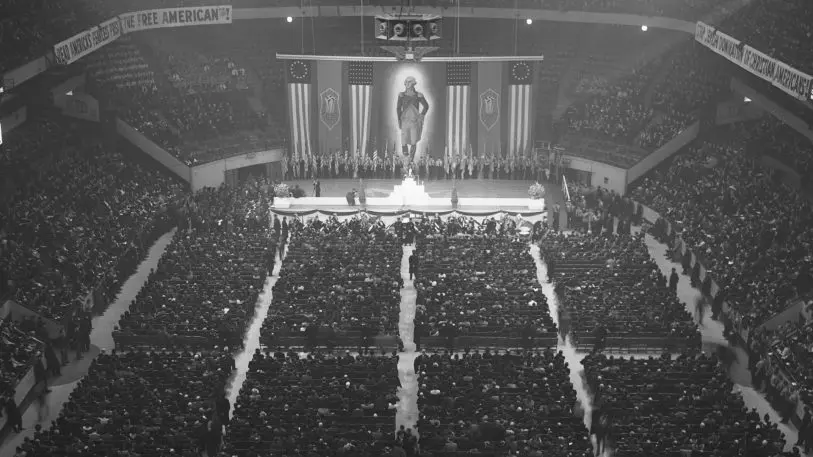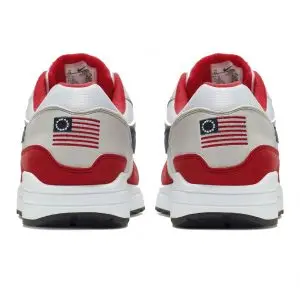Over the weekend, Nike decided to cancel a planned launch of a special edition July Fourth version of the Air Max 1 that featured the 1776 version of the American flag stitched on the heels. They made the decision after consulting with Colin Kaepernick. The flag features 13 stars in a circle, and is commonly known as the Betsy Ross flag, for its original designer. While it is a symbol of the American revolution, it’s also been co-opted by white nationalist groups over the years, including the American Nazi Party.

Of course as soon as The Wall Street Journal hit “publish” on its initial story breaking the news, critics pounced. Laura Ingraham swore off the swoosh. Arizona Governor Doug Ducey announced on Twitter he would be ordering the Arizona Commerce Authority to withdraw all financial incentives the state was offering for Nike to build a manufacturing plant there.
Nike has made its decision, and now we’re making ours. I’ve ordered the Arizona Commerce Authority to withdraw all financial incentive dollars under their discretion that the State was providing for the company to locate here. 7/
— Doug Ducey (@DougDucey) July 2, 2019

Is the 1776 flag a symbol of patriotism or racism? Nike itself manufactures and sells a Betsy Ross flag-themed jersey for the NBA’s Philadelphia 76ers, a team itself named for 1776. This isn’t a cut-and-dried issue, but what Nike did here is what those in power should, listening to and considering the perspective of people from historically marginalized groups. Surprise, surprise, that’s not Laura Ingraham and the crowd of (overwhelmingly white) critics here.
If Nike’s work with Kaepernick last year on the 30th anniversary “Just Do It” campaign and its ensuing global cultural impact illustrated anything, it’s that the company’s fortunes are inexorably tied to inclusive youth culture. There’s also the not-so small matter of that campaign’s effect on Nike’s business, namely a significant boost in sales, and an all-time high stock price.
https://youtu.be/Fq2CvmgoO7I
Whether it’s on the issue of race, gender, sexual preference, disability, or religion, Nike has made it clear in its advertising that it sees its brand and products as a tool for empowerment. Its decision here to listen to Kaepernick is an action consistent with those values it purports to believe in, something we’re constantly harping on brands and companies to be. Not taking into consideration Kaepernick’s point of view would have harmed Nike’s reputation much more than anything Ingraham or Governor Ducey could do.
In the end, it’s one pair of shoes. Those who disagree with Nike can either track down one of the few pairs that got out and now selling for thousands on the secondary sneaker market, or literally wrap themselves in Betsy Ross and wear a different pair of shoes. After all, it’s a free country.
Recognize your brand’s excellence by applying to this year’s Brands That Matter Awards before the early-rate deadline, May 3.
